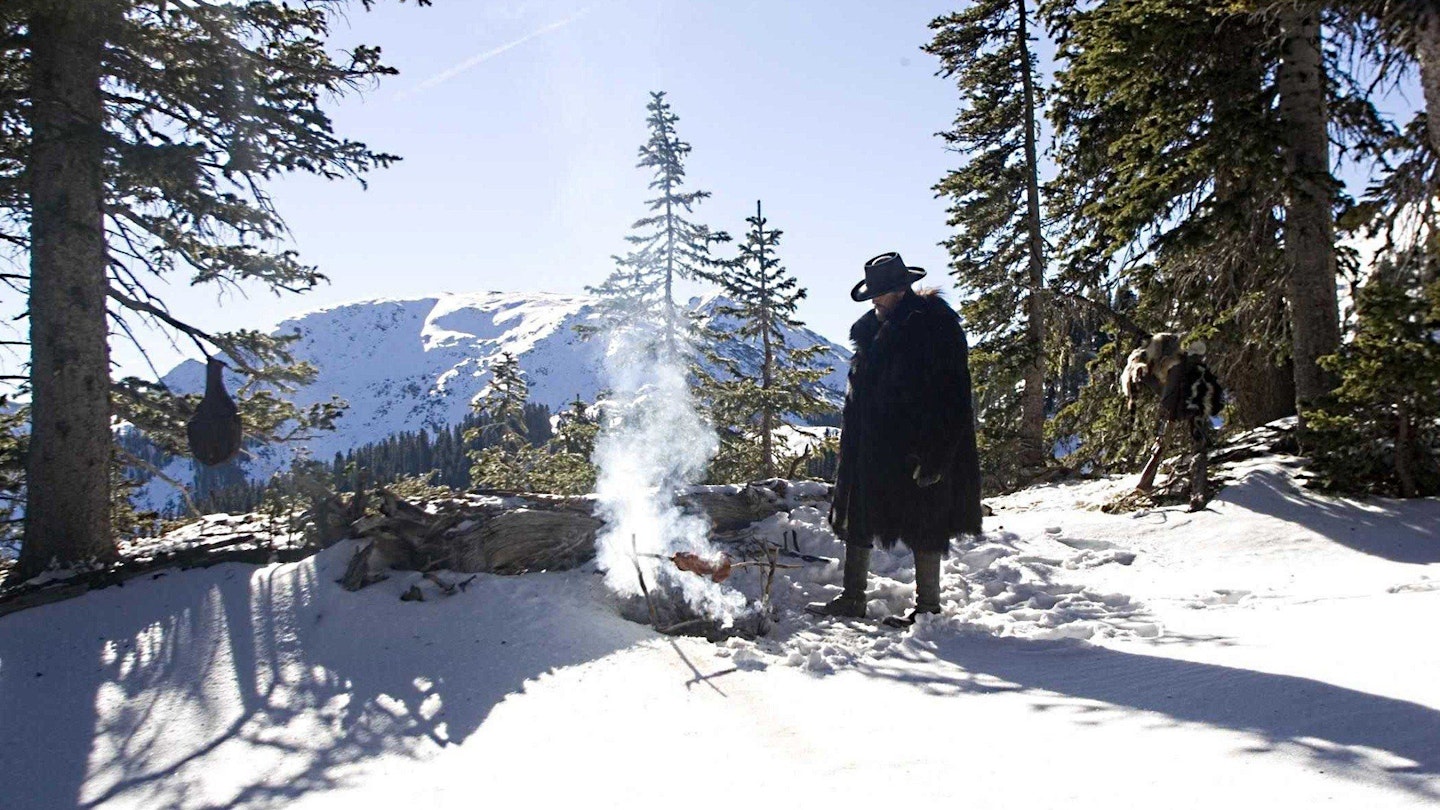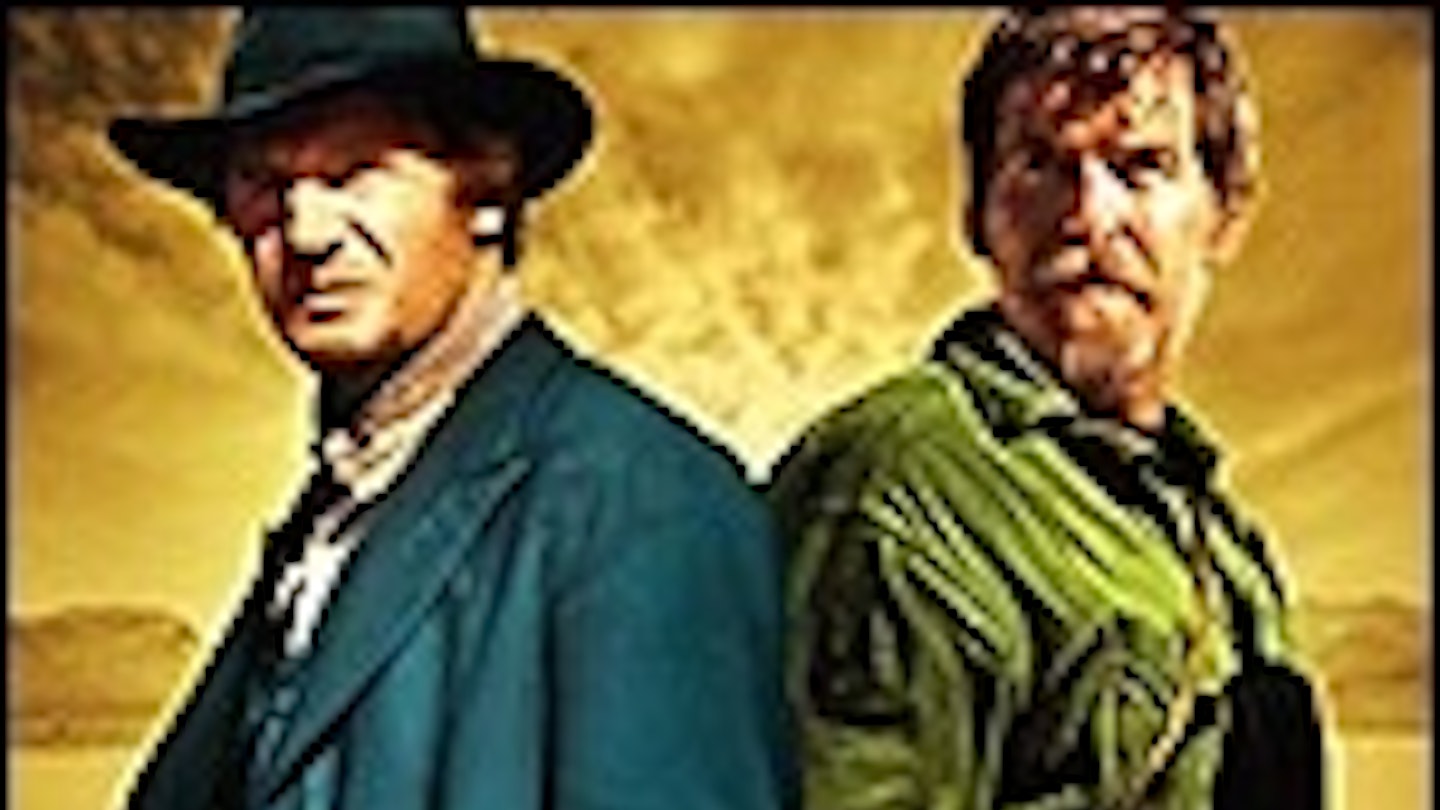The opening shot of TV veteran David Von Ancken’s classically minded Western is all about an opening shot. We’re up in the Nevadan snowbelt, where the sub-zero temperatures turn breath to steam and beards to popsicles, when a bullet punctures the flesh of Pierce Brosnan’s upper arm with the thick pop of a loosened cork. His worn face registers a heartbeat of bemusement, before he lets forth a howl of guttural agony, anguish as heavy as lead heaving out of his Irish lungs.
For Brosnan, the role, bearded and beaten, is another considered gearshift away from 007. Across a 20-minute tour de flinch of physical desperation, rarely has an actor so evoked the trials of existing in a period whose idea of anaesthetic is to clamp a soggy stick between your teeth. Just wait until Brosnan’s Gideon fishes the bullet out of his bared limb and sears it shut with the tip of his glowing knife. Or his plunge into a river so cold it knocks the breath from him like a hammer. On and on he goes, driven only by a yen to survive. When at last he breaks through the trees into a valley, you realise he hasn’t uttered a single line of dialogue. We have no idea who he is or why he’s been shot, but we know he’s in trouble.
The film, accompanying Brosnan’s drastic escape, will be thrust as if by gravity from these alpine forests, to plains, to desert sands, to salt flat as dry as bone, all photographed with robust magnificence by Terrence Malick maven John Toll. It’s a big-looking movie, full of gorgeous, textured landscapes, a film to remind those hypnotised by 300’s clammy synthesis what gifts the real world still possesses.
On Gideon’s tail comes Morsman Carver (Liam Neeson), wearing the sunny disposition of a Terminator, intent on revenge for a crime yet to surface. He’s a brute, stony presence, and this tense Western soon evolves into a double-header: two fellow Irishmen revelling in the chance to tread the traditional pastures of The Searchers and on into the timbered ranges once haunted by Josey Wales, filling even the film’s thinner patches with a tragic sense of debased humanity.
Nothing’s morally cut and dried; we’re unsure who’s the good guy and who the bad. One is Union, the other Confederate and that is entirely deliberate. Von Ancken’s after a taut psychodrama set in the aftershock of war, but he’s about to lay it on a little thick. After such a visceral beginning, so McCabe & Mrs. Miller or later Peckinpah, the film sprawls face-first into garish symbolism and anti-war sermonising.
The title is not merely geographical, it’s also an allusion to man’s fall from grace, literally from high to low, into damnation. We end up roasting on hellish plains for their final confrontation, where Wes Studi and Anjelica Huston make cameo visits as, perhaps, some of the underworld’s classical denizens. The script becomes horribly self-aware, its sudden surreal, nigh supernatural, shift dispelling the ballsy vibe. And that ‘big secret’, the cause of this relentless pursuit, doesn’t feel half as dramatic as it ought to.
Ancken was better with the grit and grimace of the manhunt: it’s a Western all in the chase, not the showdown.

